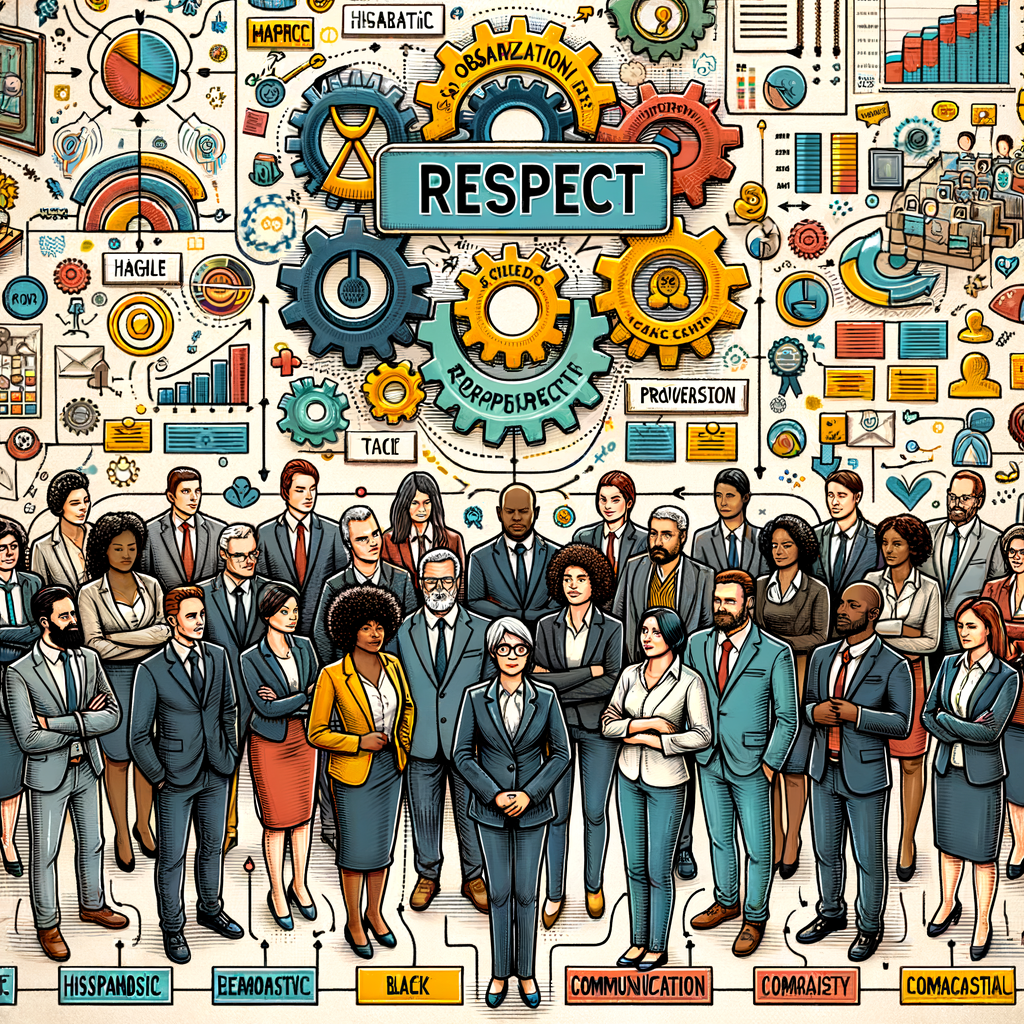In an era where diversity, equity, and inclusion are at the forefront of organizational priorities, the importance of a respectful workplace cannot be overstated. A ‘Respect at Work’ policy serves as a foundational framework for promoting mutual respect, dignity, and professionalism among employees, regardless of their roles or backgrounds.
Understanding the Concept of Respect at Work
At its core, respect at work encompasses acknowledging the inherent worth and dignity of every individual within the organization. It goes beyond mere tolerance to foster an environment where differences are celebrated, and all employees feel valued and heard.
Creating a Positive Work Culture
Central to fostering respect at work is the cultivation of a positive organizational culture characterized by open communication, inclusivity, and empathy. By embracing diversity and championing understanding, organizations can lay the foundation for a harmonious workplace environment.
Key Components of a Respect at Work Policy
A robust respect at work policy includes clear communication of expectations regarding behavior and conduct, comprehensive training and education initiatives to raise awareness, and accountability measures to address instances of disrespect or discrimination promptly.
Benefits of Implementing a Respect at Work Policy
Organizations that prioritize respect at work stand to benefit from enhanced employee morale and satisfaction, increased productivity and collaboration, and a notable reduction in workplace conflicts and turnover rates.
Challenges in Implementing Respect at Work Policies
Despite its undeniable benefits, implementing respect at work policies may encounter challenges such as resistance to change, unconscious bias, and the need for consistent enforcement across all levels of the organization.
Best Practices for Developing and Implementing Policies
Successful implementation of respect at work policies requires collaboration between management and employees, regular evaluation and adjustment of policies, and a commitment to leading by example from organizational leaders.
Case Studies and Examples
Examining case studies of organizations that have successfully implemented respect at work policies can provide valuable insights into effective strategies and lessons learned from failures.
Legal Considerations and Compliance
Organizations must ensure that their respect at work policies align with anti-discrimination laws and have robust mechanisms in place for handling complaints and conducting impartial investigations.
Measuring the Effectiveness of Respect at Work Policies
Effective measurement of the impact of respect at work policies involves gathering feedback through surveys, tracking key performance indicators, and continually assessing the organizational climate.
Addressing Specific Challenges
Organizations must proactively address specific challenges such as microaggressions and power dynamics that can undermine efforts to cultivate a respectful workplace culture.
Role of Leadership in Nurturing a Respectful Culture
Leadership plays a pivotal role in setting the tone for a respectful workplace culture by championing inclusivity, empowering middle management, and demonstrating a commitment to diversity and respect.
Continued Education and Awareness
Sustaining a culture of respect requires ongoing education and awareness initiatives, including regular training sessions and initiatives that celebrate diversity and inclusion.
Overcoming Resistance and Building Buy-In
Organizations can overcome resistance to respect at work policies by effectively communicating the benefits, providing resources and support, and fostering a sense of ownership among employees.
Conclusion
In conclusion, fostering a culture of respect through the implementation of effective ‘Respect at Work’ policies is not only essential for creating a harmonious workplace environment but also for driving organizational success. By prioritizing mutual respect, understanding, and inclusivity, organizations can unlock the full potential of their workforce and thrive in an increasingly diverse and dynamic world.
